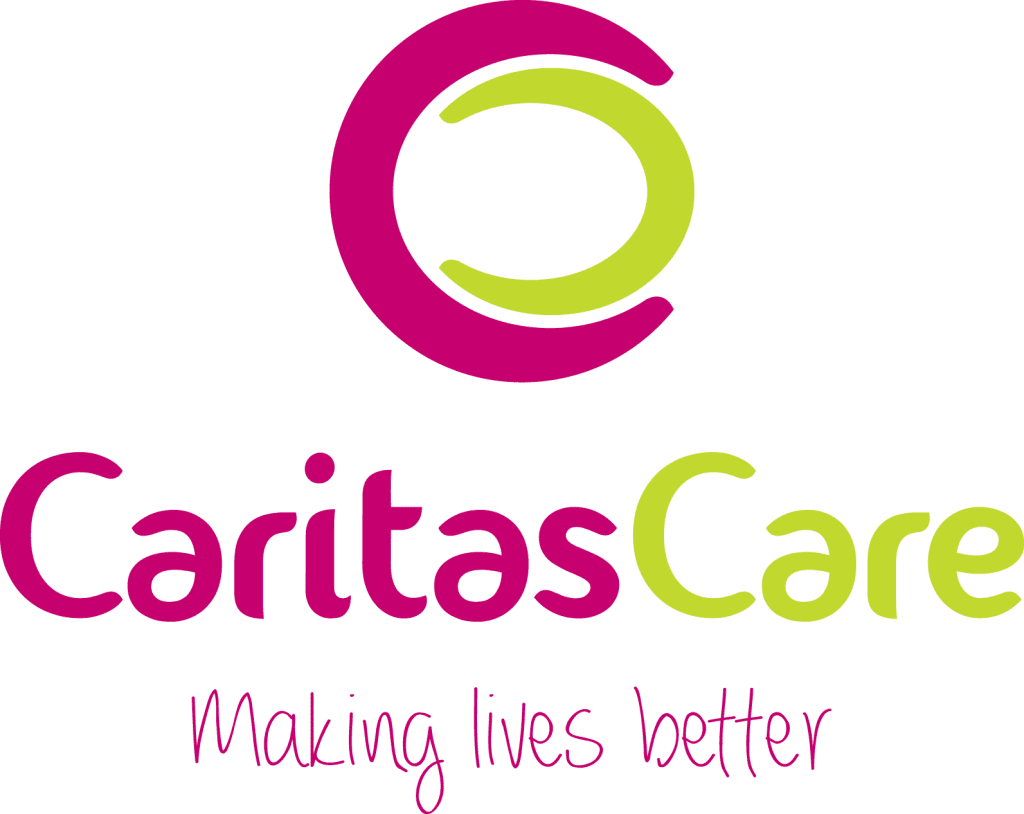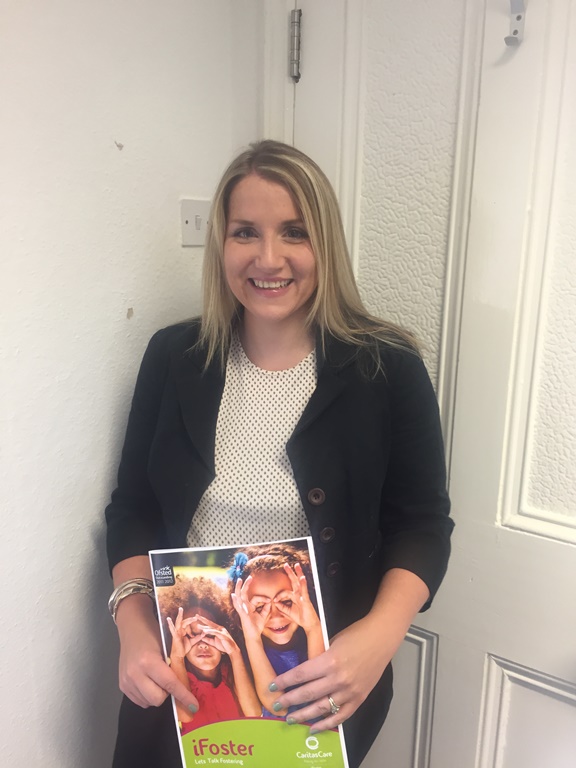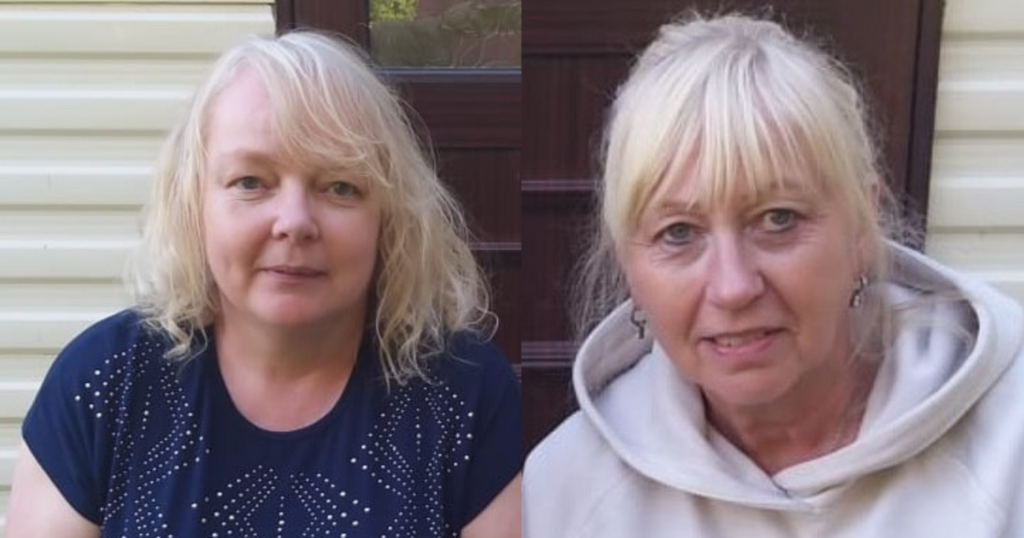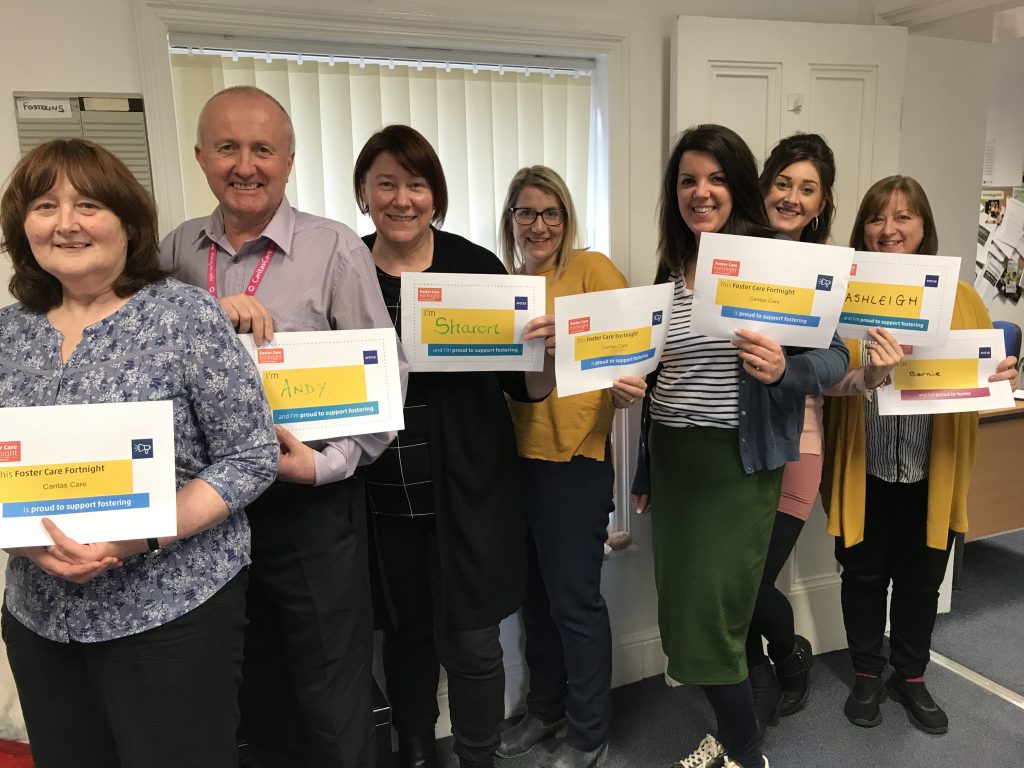We did a little Q&A with Rebecca our Fostering Team Manager about fostering with Caritas Care and here’s what she told us…
What is your position at Caritas Care?
I’m the service manager of the fostering team. In a nutshell this means I am responsible for ensuring the service runs smoothly, supporting the team at Caritas Care so in turn they can support our foster carers and the children in their care. A key role is also getting the message out that we need more foster carers at Caritas Care, hence the reason I’m here today..
Can you explain more about what the team do on a day to day basis?
The team is made up of four Social Workers, one assistant social worker, an education officer and a recruitment officer.
The Social Workers primary role is offering support and guidance to our 21 fostering families. Ensuring they have the all the training they need, access to other services, and generally being there to listen and support.
They as well as the assistant Social Worker will provide direct sessions with young people where appropriate, this can range from a mentoring type role through to specific work such as therapeutic life story sessions, which gradually help the child to get to know and understand their life history and journey to where they are today.
Our education officer liaises with carers, children, schools and special educational needs professionals to ensure our children get the best possible opportunities in school. Also, providing training to teachers regarding the trauma and attachment difficulties that can impact our children in school and how best to support them.
Our recruitment officers at Caritas Care do a fabulous job in getting out and about around the North West spreading the word about Caritas Care and the need for more foster carers. Also utilising the various forms of social media, you can find us on Facebook, Twitter and Instagram. As well as of course on our own ifoster website.
Is there a shortage of foster carers in the North West?
Unfortunately yes there is a significant shortage. It is in fact the area of the UK most in need, with more required then any other area, including London. The latest statistics from Fostering Network estimate that a further 1,050 carers are needed in the North West in the next 12 months to meet the anticipated demand. The total for England as a whole is just over 7,000.
Fostering Network have also conducted research on the most needed types of placements. Teenagers were the top of that list, which is our experience at Caritas Care too, although we do also receive a lot of referrals for primary aged children as well. Secondly in the research was sibling groups, which can be older or younger children. This can include under 5’s, who are most likely to be referred to us as part of a sibling group. Thirdly there is recently a much increased need for parent and child placements. These types of placements are usually with the mother, but sometimes the father or even both… and are typically short term. During this time the emphasis is on supporting the parent to learn how to care for their child appropriately and determining if the level of care is sufficient to allow them to live together independently. We understand that those types of placements need carers to have specific training and extra support so we make sure we offer that so that carers are confident in what they do.
What traits do people need to become foster carers?
There is no ‘typical’ or ‘ideal’ foster carer. At Caritas Care our foster carers are a very diverse bunch and that’s great….different ethnicities, of a particular faith, or not of any, single, living together, same sex couples, some are employed and some have given up work. Some of the key traits they all have in common are empathy….empathy for the child’s history and how this may impact them whilst in their care, a willingness to learn….not just in formal training… though there is quite a bit of that, but also to learn about the children in their care, what makes them happy, what makes them sad or scared and in turn how best to care for them. This also means that as a foster carer you need to be able to ask for help and advice because it won’t always be straight forward and accepting support will make you more able to support the child. At Caritas Care our focus is helping foster carers be the best carers they can be.
How long does the fostering assessment process take?
Typically 6-8 months from the point someone’s application is accepted. If someone has fostered before this can be quicker. Prior to that we are happy to give people as much information and support as they need before reaching a decision whether to apply. We can come and visit to discuss fostering without any commitment to actually applying at that stage. We just want people to feel informed and have all their questions answered to help them decide.
If you do decide to apply. The first phase of the assessment involves gathering information from referees, a criminal records check and a medical. However please note that having a criminal conviction or a medical condition would not necessarily mean you couldn’t foster. It would very much depend on the type and circumstances of conviction, or whether a medical condition would have a negative impact on your ability to care for child safely. Again we would always say ask us about these things if you want to know if it would effect your application.
The second phase is about your Social Worker getting to know you more so that they can assess your suitability to foster thoroughly and also what type of placement might suit you best. During that phase you would also complete the Skills to Foster training course. We want to use that time to make sure you’re fully prepared for the fostering task.
What’s the difference between fostering and adoption?
That’s a great question, as whilst it might seem obvious for some people for others it is not so clear. People often think its about how long a child stays with you, as in forever…but actually that can apply with long term foster care too. The key difference is that adoption means you will become the child’s legal parent, with fostering that is not the case and the legal parental responsibility for the child usually lies with their local authority and/or their birth family. This means that significant decisions about their care, such as the school they attend, are agreed jointly. They are also more likely to have some contact with birth family members on a regular basis though that is not always the case.
Caritas Care are one of a relatively small number of agencies that provide both fostering and adoption services and we have recently launched a new scheme called Future Families for Children that bridges the gap between the two. There are many children of primary school age particularly, who are identified as requiring an adoptive family but due to their older age and sometimes their needs, or the fact they are part of a sibling group, one has not been identified through the usual methods. Through Future Families for Children, children would be placed initially as a fostering placement to ensure that the carers get a higher level of support whilst they get to know the child/children and form that much needed bond. They would also receive a financial allowance during that time, similar to traditional foster care. If and when they are all ready to proceed to legal adoption, carers and children would be fully supported through that process.
What would you say to someone who is thinking of fostering?
Get in touch with us…give the team at Caritas Care a call, or send us an email or message through our website or Facebook and we’ll contact you back. Our info brochure is available online or we can send you a copy. No question is silly one, we want to make sure you have all the information you need if you’re thinking of fostering and even if your not ready now but think you might be in the future we are happy to offer advice and information.






